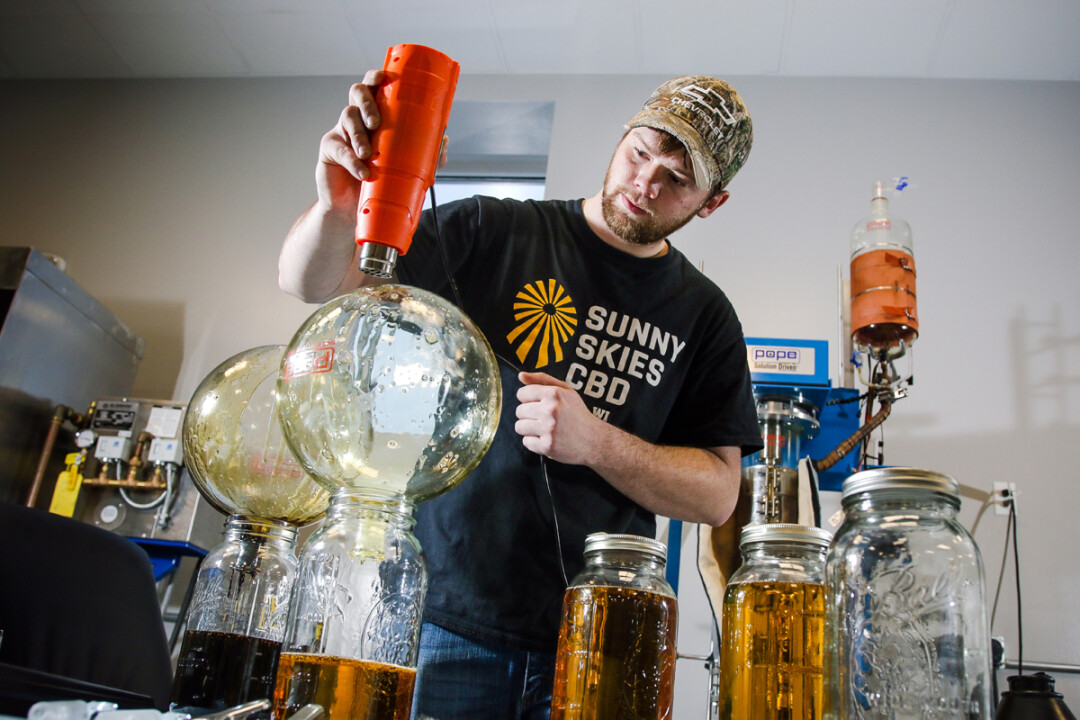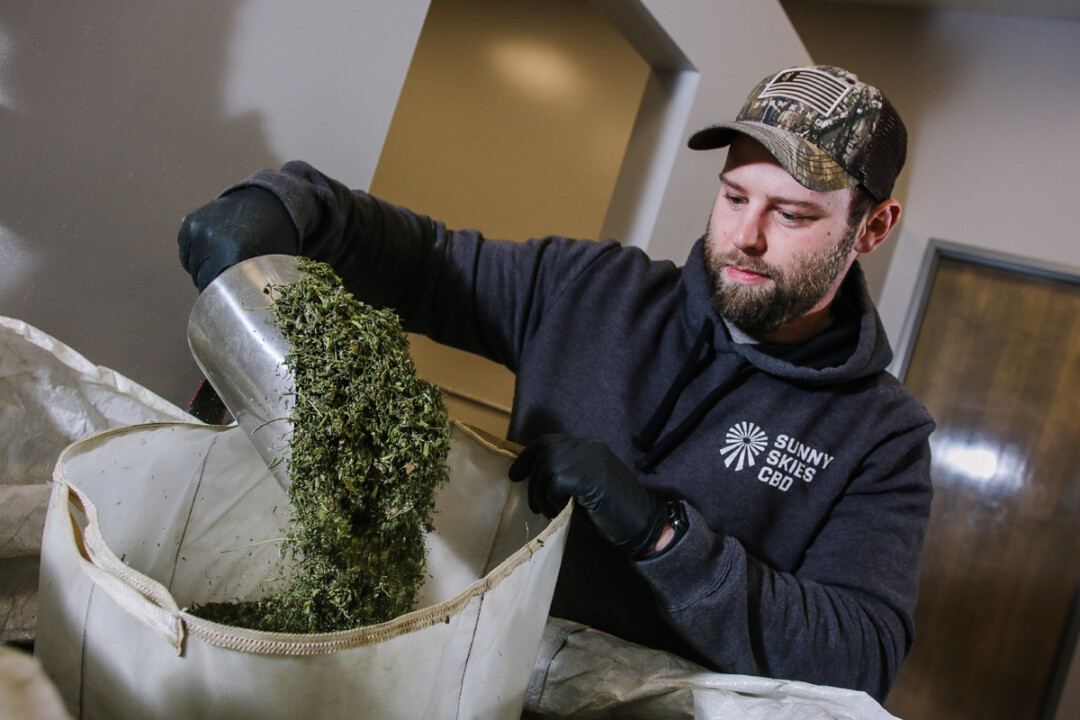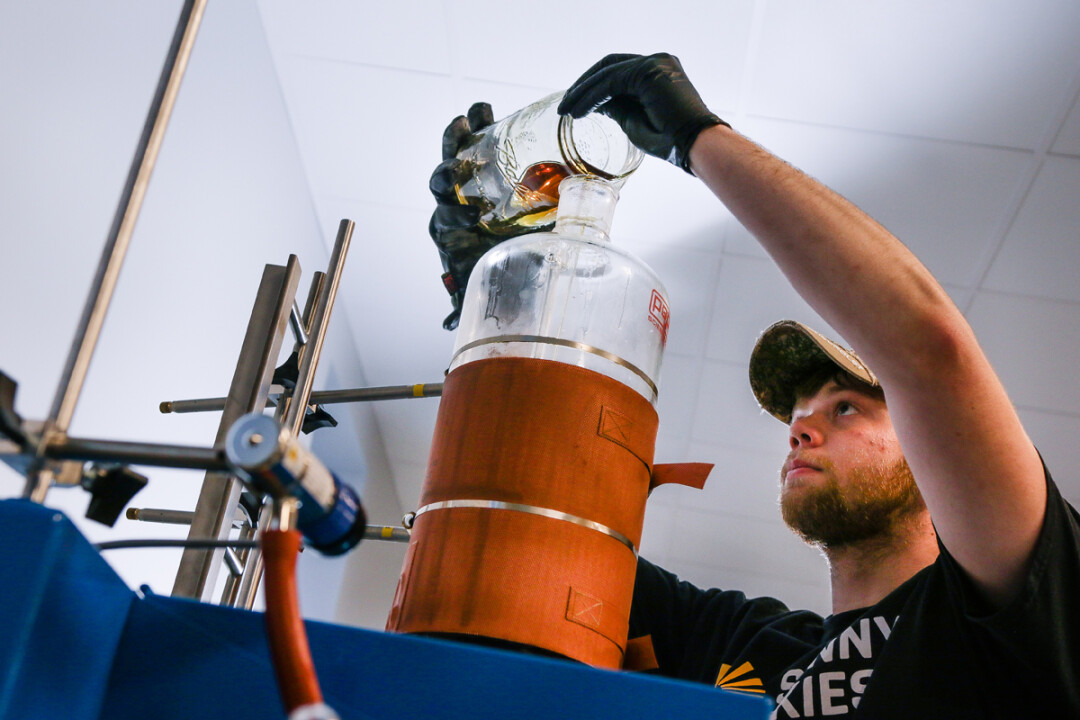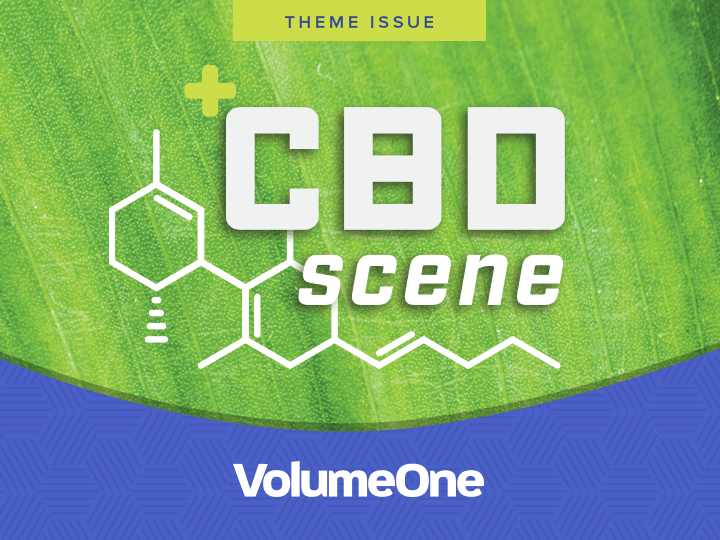Sunny Skies CBD in Durand Says the Future Looks Bright for the New Industry
Tom Giffey, photos by Andrea Paulseth

On Durand’s Main Street you can catch a glimpse of what could be a big part of rural Wisconsin’s future: There, just past the City Hill, across the street from the Courier-Wedge newspaper office, and next door to the RoosterTail Bar & Grill, is the headquarters of Sunny Skies CBD, one of that CBD-related businesses that have proliferated in the state in the past two years.
Literally and figuratively, Sunny Skies is a homegrown company, selling products made from industrial hemp (aka cannabis) grown in west-central Wisconsin. As with most growers and processors in Wisconsin’s budding hemp industry, Sunny Skies is focused on CBD – otherwise known as cannabidiol – a non-psychoactive compound in hemp that is used as a supplement to treat a range of health concerns. In one short year, Sunny Skies has gone from only an idea to a bustling business with big plans.
“We want to be the premiere Midwest CBD brand,” CEO and co-founder Ben Rippley said. “It shouldn’t be be too difficult because it’s all just starting.” Rippley co-founded the company with Durand native Pete Adler, a lifelong friend of his father’s. Rippley grew up in Colorado, where he previously worked for a CBD product manufacturer, but he frequently visited his grandparents in Durand growing up.
A little more than a year ago Rippley’s father, John, read about the upcoming second year of Wisconsin’s hemp pilot program. One thing led to another, and Rippley decided to relocate to the Badger State and get into the hemp business. Last spring, plants were started in a greenhouse, and by summer they were flourishing on 10 acres in Somerset and Arkansaw. When dried, the result was about 20,000 pounds of hemp with a 21% concentration of CBD. The figure pleased Rippley, who said he would have been happy with 10%.

And it’s that CBD – not the psychoactive THC that gets marijuana users high – that’s key to businesses such as Sunny Skies, which has converted most of a former auto dealership into a high-tech extraction and production facility.
During a recent tour, processing engineer Hunter Adler demonstrated the equipment that extracts CBD from the hemp. Dried biomass – essentially, the shucked flowers and leaves of the cannabis plant – are placed in filter bags inside an extractor tank. Here, the aromatic plant material is bathed in supercooled ethanol, which acts as a solvent to remove CBD. The resulting product is run through a centrifuge and heated in another machine to remove the remaining ethanol. Finally, it is run twice through a still, which produces jars of golden-colored, CBD-rich distillate. At Sunny Skies, large Ball jars are filled with the rich fluid, which resembles honey or iced tea.
The distilled CBD may then be used in so-called full-spectrum products (which contain trace amounts of THC but are below the legal threshold of 0.3%) or in products that are tested to be entirely THC free.
Like most CBD businesses, Sunny Skies produces a range of products aimed as a variety of consumers. The most popular are CBD tinctures: Sold in small bottles with droppers, tinctures are mixtures of isolated CBD oil in a carrier oil (MCT, or medium chain triglyceride oil), and flavoring. There are also CBD cremes for aching joints, pet tinctures, bath bombs, breath sprays, and more. Sunny Skies also produces products that are intended to be inhaled, such as “shatters,” which are made to be vaporized and smoked with a technique called dabbing.

CBD businesses must walk a fine line in promoting their products. Rob Griffin, Sunny Skies’ director of marketing, said specific claims about the curative properties of CBD are a no-no because CBD – while legal – isn’t approved as a treatment by the U.S. Food and Drug Administration. Like vitamins and supplements, CBD products typically carry disclaimers such as “These statements have not been evaluated by the FDA and are not intended to diagnose, treat or cure any disease.” Because of this, Sunny Skies and other businesses rely on testimonials from customers who have found that using CBD has helped ease pain, inflammation, anxiety, insomnia, and other problems.
Through advertising and social media, Griffin said Sunny Skies is focused on educating the public about what CBD is – and what it isn’t: For example, a recent Facebook post began with the question, “Will CBD get me high?” (The short answer is “no.”)
Colorado, Rippley’s former home, is at the forefront of cannabis culture, having been the first state to legalize recreational marijuana in 2012. By contrast, Wisconsin’s hemp industry is still in its formative stages, which gives businesses such as Sunny Skies the chance to become big players. At the moment, Rippley estimates his business is one of the larger CBD processors in Wisconsin, although he’s quickly to point out there are only a handful of processors in the state and that no Midwest CBD brands are among the top 25 nationwide.
“I don’t see any reason why it would slow down,” Rippley said of the rapid growth of the CBD industry in Wisconsin. While producers and retail outlets have proliferated in the past two years, Rippley notes that most people still haven’t tried CBD, which means a huge, untapped market remains.
“It’s still the beginning,” he said. “The more research comes out, the more people will try it. The more people try it, the more people will keep using it, because it works.”
Learn more about Sunny Skies CBD at sunnyskiescbd.com or find them on Facebook. Sunny Skies CBD’s products are available through the company’s website as well as through retail outlets, including The Local Store, 205 N. Dewey St., Eau Claire.

